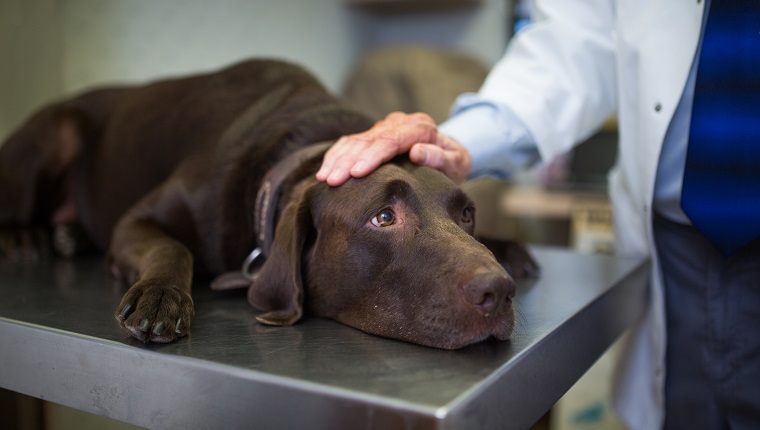Tyzzer disease in dogs is a bacterial infection that dogs often contract by ingesting infected feces. The disease is specifically caused by the bacterium Clostridium pilformis.
The bacteria travels through the intestine and can reach the liver, where it can result in serious complications. Generally, younger dogs have the highest risk, and the disease can prove to be life-threatening in an unfortunate number of cases.
If you see signs that your dog might be suffering from an infection, then you must consult your veterinarian for a proper diagnosis and course of treatment. Here’s what you should know about the symptoms, causes, and treatments of tyzzer disease in dogs.
Symptoms Of Tyzzer Disease In Dogs
Tyzzer disease in dogs can result in a large range of symptoms. Some of the most common general symptoms include:
Causes Of Tyzzer Disease In Dogs

Tyzzer disease in dogs occurs when the bacterium Clostridium pilformis enters a dog’s body. This usually happens when a dog ingests infected feces; although in some cases, a dog can also develop the disease by consuming contaminated meat.
In general, younger dogs have the highest risk of contracting the disease, especially if they are going through a stressful situation.
Veterinary Treatments
If you think that your dog has developed tyzzer disease, your veterinarian will want to carry out a full physical examination. They’ll order a complete range of laboratory, including analysis of blood, urine, and electrolytes.
Monitoring the level of liver enzymes can be key in diagnosing the disease.
At the time of writing, there is unfortunately no known cure for this disease in dogs. Confirmed cases can end fatally, and death can occur within a short period of time. The disease has proved to be resistant to most antibiotics used to try and combat it.
In general, the best precaution to take is to ensure that your dog stays away from the feces of other dogs, and keep an eye on local pet news reports for details about outbreaks of this disease in the area.
Has your dog ever developed tyzzer disease? What did your vet suggest for treatment? Tell us all about it in the comments below.




